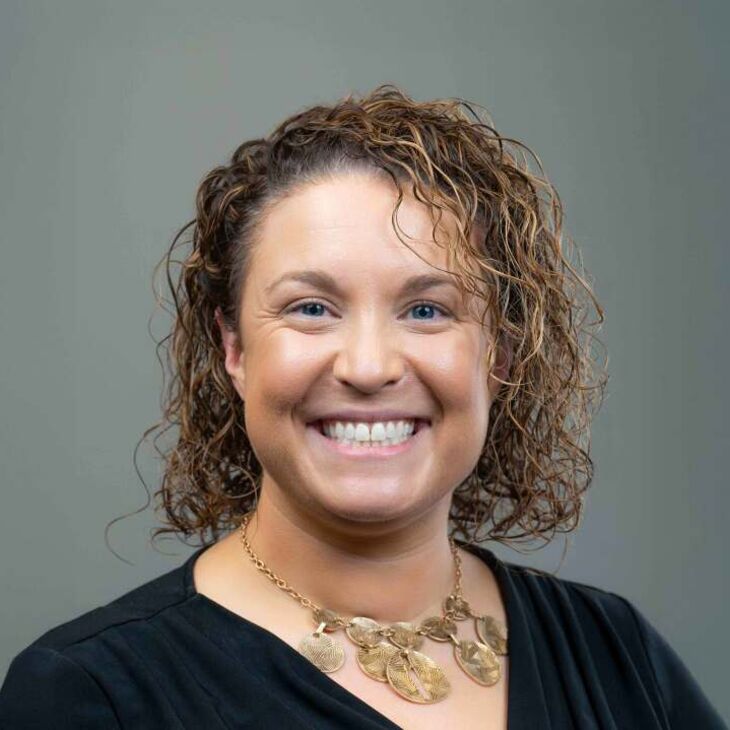Published report documents invasive mental health questions on nursing licensure applications across U.S.
A new national review conducted by The Ohio State University and published today by the top-tier journal Worldviews on Evidence-Based Nursing finds that nearly three-quarters of the United States use nursing licensure applications that include intrusive and stigma-inducing questions regarding mental health and substance use that can discourage nurses from seeking the help they may need.
“Far too often, nurses forgo mental health care that they need because of stigma and fear of losing their jobs,” said Bernadette Melnyk, PhD, APRN-CNP, FAANP, FNAP, FAAN, vice president for health promotion and chief wellness officer at The Ohio State University and Helene Fuld Health Trust professor of evidence-based practice at Ohio State’s College of Nursing, who led the review. “Some of the questions we found in applications used across the country go far beyond any current situation or ask for unnecessary information that deepens stigma and deters nurses from seeking needed treatment. We must do better for the people who we desperately need and count on to take care of us.”
To view the special webinar hosted on October 30
featuring Dr. Melnyk and J. Corey Feist from the Dr. Lorna Breen Heroes' Foundation,
please click on this link.
This Phase I audit examined licensure applications for registered nurses (RN) and advanced practice registered nurses (APRN) nationwide using a standardized toolkit created by the Dr. Lorna Breen Heroes’ Foundation and endorsed by the National Institute for Occupational Safety and Health. The Remove Intrusive Mental Health Questions from Licensure and Credentialing Applications Toolkit includes a checklist through which to judge the application questions, including whether the questions:
- Surpass current impairment, contain invasive language or request disclosure around mental health
- Mention time-off or breaks in practice relating to mental health or substance use
- Include non-supportive language
- Ask about past treatment
- Include unnecessary fine print
- Separate mental and physical health
At least one application for both RN and APRN applicants was obtained from 41 states. Only RN applications were obtained from six states, while only APRN applications were obtained from three states. In the course of the review of the applications obtained, only 13 states – Hawaii, California, Utah, Arizona, Nebraska, Oklahoma, Mississippi, Kentucky, North Carolina, Maryland, New York, Connecticut and Massachusetts – fully adhered to the tool-kit checklist and were deemed “compliant,” mostly due to not including any mental health or substance use questions.
The next phase of this work will include a verification review by the Dr. Lorna Breen Heroes’ Foundation. J. Corey Feist, JD, MBA, president and co-founder of the foundation, led a similar review of state medical boards and health systems.
“It is imperative for the future of healthcare and our healthcare system that we look very closely at how we are supporting clinicians in all facets, including in what we ask them on licensure applications,” Feist said. “It may be unintentional, but invasive questions and requests threaten to drive more people away from treatment or out of healthcare altogether. If we are serious as a country about destigmatizing mental health, then urgent action is needed to rectify this situation for our healthcare heroes.”
The audit notes that the Federation of State Medical Boards “released recommendations [in 2018] concerning removal of invasive mental health and substance use questions from physician licensure applications … The National Council of State Boards of Nursing has not released comparable guidance.”
“We are eager to partner with the National Council of State Boards of Nursing and work shoulder-to-shoulder to develop standardized recommendations that serve to lift the mental health stigma that is still pervasive across our nation for our most trusted profession,” Melnyk said. “With the high level of burnout, mental health issues and suicide rate in nurses, we must do all we can to support and help nurses who are struggling to get needed treatment.”
The Dr. Lorna Breen Heroes’ Foundation created a WellBeing First Champions program for its state medical board/health system review. It is working on launching a national Champions Challenge to extend the program for nursing licensure as this work progresses.



